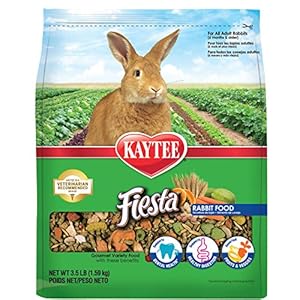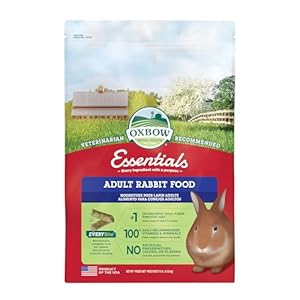
Brazil is likely one of the world’s main agricultural nations, and its orange manufacturing has exploded in response to surging international demand. Areas reminiscent of São Paulo and Minas Gerais in Brazil’s citrus sector thrive as a result of nation’s temperate temperature and fertile soils, making it the world’s prime supplier of orange juice.
Brazil is well-positioned to capitalize on its pure benefits within the beverage trade, which is being pushed by rising demand from health-conscious shoppers, increasing populations, and increasing beverage markets in North America, Europe, and Asia. A variety of temperatures, from tropical to subtropical, in addition to soils which are wealthy in vitamins and drain effectively, make this nation a super location for citrus orchards.
However, farmers face challenges reminiscent of pests, drought, and fluctuating international costs, which take a look at their resilience. The sector has been fortified by sustainable practices, technological breakthroughs, and authorities insurance policies, guaranteeing Brazil’s dominance in international orange provide chains.
Additionally coated are rising methods, regional variances, and financial repercussions of Brazil’s orange output spike. The ebook explores the advanced rules of this phenomenon. From the sunny groves of the Southeast to pest management and market instability, this complete research highlights the environmental and financial challenges that Brazil faces because it tries to fulfill the world’s demand for oranges and orange merchandise. What are we ready for? Let’s have a look at orange manufacturing in Brazil.
Why International Urge for food for Citrus Is Supercharging Orange Manufacturing in Brazil
Strengthening São Paulo’s Citrus Belt to Meet International Orange Juice Wants
As a consequence of rising worldwide tendencies within the consumption of orange juice, over 70% of Brazil’s oranges are sourced from São Paulo, the citrus heart of the nation. The perfect circumstances for citrus fruit development are subtropical temperatures starting from 15 to 30 levels Celsius, barely acidic soils, and wonderful drainage.
Brazilian citrus growers make use of high-tech methods like drip irrigation and precision cultivation to maximise manufacturing.
Step 1: Implement drip irrigation to optimize water utilization.
Step 2: Use precision cultivation to observe soil and plant well being. Exports of oranges from Brazil contribute billions to the nation’s gross home product and supply employment alternatives in rural areas.
The orange enterprise in Brazil is dealing with challenges with citrus greening and frequent droughts, which may affect productiveness. Using resistant rootstocks and organic therapies is a key part of built-in pest administration in Brazil’s citrus orchards. Subsidies from the Brazilian authorities permit the citrus trade to have interaction in sustainable orange farming practices by offering reasonably priced loans.
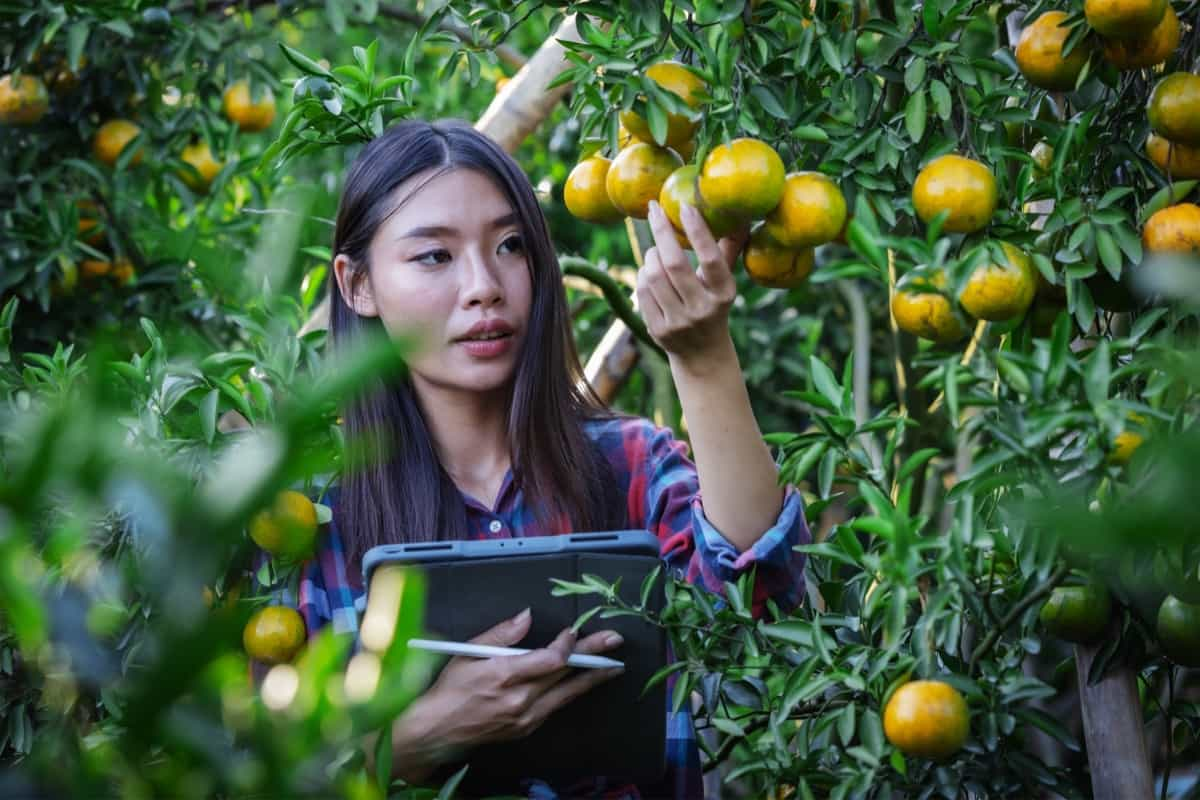
These mirror the traits of the worldwide citrus market, the place Brazil accounts for nearly 80% of the world’s concentrated orange juice manufacturing. São Paulo has used technological developments in orange manufacturing to handle the rising demand for oranges from Brazil, circumvent the climatic limitations within the citrus belt of São Paulo, and assure the profitability of orange farming in Brazil.
| Strategies | Function | Advantages |
|---|---|---|
| Drip Irrigation | Optimize water utilization | Reduces water waste |
| Precision Cultivation | Monitor soil/plant well being | Enhances yield high quality |
| Resistant Rootstocks | Fight citrus greening | Improves plant resilience |
Maximizing Minas Gerais’ Soil Range for Orange Manufacturing Development
Minas Gerais, which is Brazil’s second-largest orange-producing state, takes benefit of the chance to extend its orange output as a way to meet the demand from international markets. With a variety of soil varieties, from sandy loams to fertile latosols, citrus could develop in a variety of microclimates.
Brazil is ready to produce candy oranges for each the contemporary and juice markets due to its distinctive citrus soil varieties. Orange Brazilian manufacturing should prioritize value containment in gentle of the issues offered by rising fertilizer and pesticide costs.
Step 1: Undertake water-efficient irrigation techniques to cut back prices.
Step 2: Use drought-resistant varietals to mitigate drought affect.
In areas vulnerable to drought, they deal with this by implementing water-efficient orange irrigation techniques. The results of the drought on orange output have prompted Brazil to embrace drought-resistant orange varietals. By incentivizing water-efficient expertise, citrus-related Brazilian agricultural rules promote sustainability in orange plantations in Minas Gerais.
Sustainability in citrus merchandise is a vital international pattern, and these measures are in concord with that demand. Eco-conscious shoppers are those pushing the market ahead. Utilizing trendy orange harvesting methods and controlling citrus pests in Brazil, Minas Gerais is ready to enhance Brazil’s orange exports, making Brazilian oranges extra aggressive and establishing itself as a key participant within the international orange provide chain.
| Soil Sorts | Suitability | Administration Technique |
|---|---|---|
| Sandy Loams | Good drainage | Common nutrient supplementation |
| Fertile Latosols | Excessive nutrient content material | Minimal fertilization wanted |
Adapting Rio de Janeiro’s Coastal Local weather for Strong Orange Cultivation
The humid subtropical local weather of Rio de Janeiro is conducive to orange cultivation, regardless of a number of challenges. One consequence of the tropical local weather on Brazilian oranges is the excessive humidity, which brings pests just like the citrus blackfly.
Organic strategies management these pests.
Step 1: Introduce pure predators to cut back pest populations.
Step 2: Monitor pest ranges to regulate management measures. Oranges value extra to develop in Brazil due to the nation’s land scarcity and the quantity of labor required to manage pests. Revenue margins in Brazil’s orange trade stay excessive, however, due to the fruit’s rising demand elsewhere.
Brazilian citrus growers in Rio give attention to producing high-quality, contemporary oranges for area of interest export markets and native consumption. Orange growers in Brazil can reap the benefits of tax incentives to purchase climate-adapted orange varieties. Regardless that the winter climate in Brazil will be unpredictable, these strategies persistently produce citrus fruits.
Completely different flavors profit from Rio, and Brazilian orange juice is a serious participant on the worldwide stage. Sustainable citrus farming practices and the decision of regional local weather challenges in Rio de Janeiro assist farmers improve the expansion of Brazil’s orange manufacturing. In doing so, it satisfies the worldwide demand for citrus fruits and retains Brazil’s orange exports aggressive.
| Pests | Management Strategies | Benefits |
|---|---|---|
| Citrus Blackfly | Organic predators | Reduces chemical use |
| Basic Pests | Common monitoring | Well timed intervention |
Scaling Paraná’s Orange Groves in Cooler Climates for International Markets
The area’s milder subtropical local weather with completely different seasons is driving an enlargement in orange manufacturing in Paraná to fulfill international demand. For optimum harvest period, late-maturing orange cultivars are fostered in Brazil’s gentler citrus temperature zones.
Brazilian citrus growers face unsure winters, however they could mitigate a number of the harm through the use of frost safety strategies, reminiscent of wind machines.
Step 1: Set up wind machines to forestall frost harm.
Step 2: Monitor climate forecasts to activate safety. The export of oranges from Paraná has a major constructive affect on the native financial system.
Mechanized citrus harvesting allows Brazil to develop oranges at a decrease value than beforehand. Authorities subsidies in Paraná permit citrus growers to buy reasonably priced tools, which in flip will increase output in Brazilian orange groves.
Paraná is responding to the worldwide demand for oranges by decreasing the affect of drought on their orange fields by means of using sustainable irrigation applied sciences in Brazil. Paraná orange manufacturing is worthwhile and provides to Brazil’s worldwide citrus provide due to the utilization of pest-resistant orange varieties and trendy citrus farming methods.
| Know-how | Function | Profit |
|---|---|---|
| Wind Machines | Frost safety | Prevents crop loss |
| Mechanized Harvesting | Cut back labor prices | Will increase effectivity |
Mechanized citrus harvesting allows Brazil to develop oranges at a decrease value than beforehand.
Its heavy rainfall and year-round heat are perfect for rising oranges, which the state is more and more cultivating to fulfill international demand. The distinctive tropical citrus soil options of Brazil’s orange orchards require meticulous nutrient conservation practices, that are addressed by the state’s orange soil administration packages.
As a result of rising expense of manufacturing citrus fruits in Bahia, growers are turning to high-yield orange varietals from Brazil. Rural communities in Bahia profit economically from orange exports, that are pushed by the worldwide demand for Brazilian orange juice.
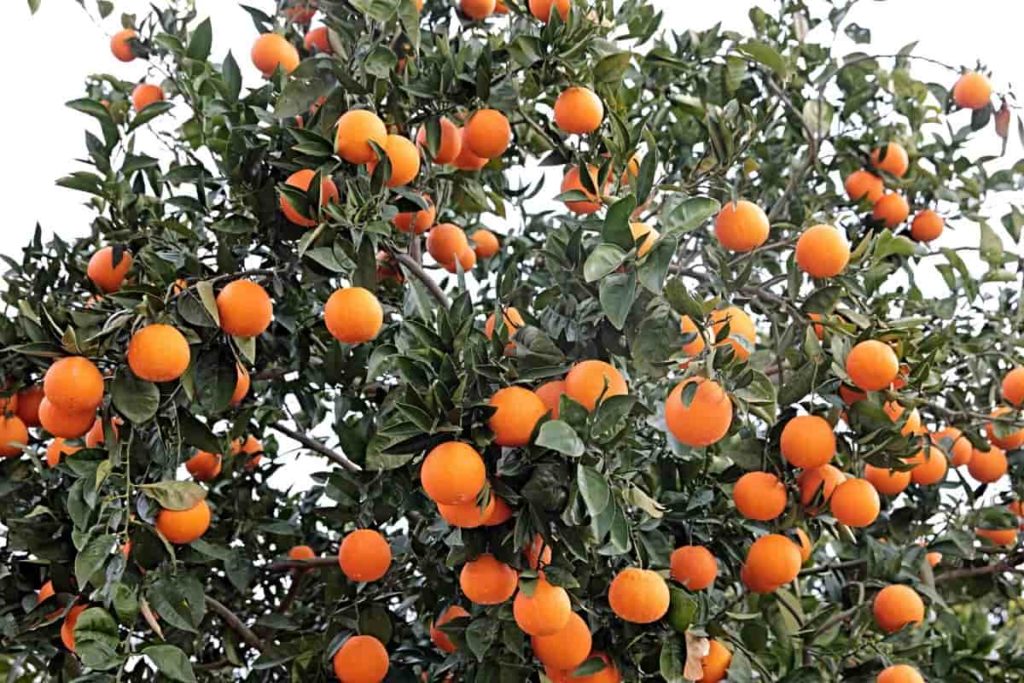
Built-in pest administration methods for oranges management fruit flies in citrus plantations in Bahia, Brazil.
Step 1: Deploy traps to observe fruit fly populations.
Step 2: Use organic controls to cut back pest numbers. Authorities packages that help Bahia citrus, like subsidies for natural fertilizers, promote sustainable orange farming in Bahia.
These practices align with international sustainability tendencies in citrus rising and improve Bahia’s competitiveness in Brazil’s orange exports. To make sure the profitability of Bahia orange farms and meet the demand for Brazilian oranges abroad, the state takes measures to beat the challenges posed by the tropical atmosphere in Bahia citrus. These measures embody establishing climate-resilient orange cultivation in Brazil and efficient orange harvesting in Bahia.
| Pest Management Technique | Goal Pest | Profit |
|---|---|---|
| Traps | Fruit Flies | Early detection |
| Organic Controls | Fruit Flies | Environmentally pleasant |
Enhancing Espírito Santo’s Citrus Farms for International Export Success
As a consequence of its favorable local weather and ample grounds, Espírito Santo is ready to produce sufficient oranges to fulfill the rising demand globally. Brazil’s subtropical citrus soil varieties produce high-quality oranges for the contemporary and processed markets.
Brazil’s mechanized citrus farming partially compensates for the excessive labor prices related to Espírito Santo citrus. The expansion of the worldwide orange juice enterprise is useful for native economies since extra individuals can afford to purchase oranges.
Brazilian citrus growers could handle bug infestations of their orange orchards within the state of Espírito Santo utilizing organic management methods, decreasing the necessity for chemical pesticides. The demand for ecologically pleasant oranges all over the world is met by Brazil’s sustainable citrus practices, that are funded by authorities incentives for Espírito Santo citrus.
Brazil cultivates drought-tolerant orange varieties to make sure common yields of Espírito Santo oranges, thereby mitigating the affect of local weather change. Using state-of-the-art orange farming applied sciences and productive citrus rising in Espírito Santo, the state meets the calls for of the worldwide citrus market. This method ensures that the manufacturing of Espírito Santo oranges will likely be worthwhile and boosts Brazil’s orange export development.
| Farming Observe | Function | Profit |
|---|---|---|
| Mechanized Farming | Cut back labor prices | Will increase profitability |
| Drought-Tolerant Varieties | Fight local weather change | Ensures constant yields |
Optimizing Sergipe’s Small-Scale Farms for International Orange Markets
Using the nation’s orange output, small-scale citrus farms in Sergipe get entry to international marketplaces. Though fertilizer management is important for Brazilian oranges as a result of soil fertility difficulties in Sergipe citrus, the state’s tropical atmosphere permits year-round development.
Using cost-effective citrus farming methods is important for growers to take care of profitability in Sergipe orange fields, emphasizing the significance of value administration. As a result of international demand for Brazilian citrus, locals in Sergipe depend upon the orange export enterprise for his or her livelihood.
In Brazil, the citrus fields in Sergipe make the most of natural pest administration for oranges, aligning with sustainable citrus farming rules aimed toward efficient pest management. The Brazilian authorities gives citrus growers in Sergipe helpful microcredit packages to assist them put money into citrus cultivars which are extra suited to the Brazilian atmosphere.
By addressing drought considerations, these measures make sure the constant manufacturing of Sergipe oranges. To fulfill the calls for of the worldwide orange market, enhance Brazil’s competitiveness as an exporter of citrus fruits, and encourage sustainable orange manufacturing in Sergipe, the state has instituted environment friendly citrus farming and small-scale orange harvesting in Brazil.
| Assist Program | Function | Profit |
|---|---|---|
| Microcredit Applications | Fund climate-adapted varieties | Enhances farm resilience |
| Natural Pest Administration | Sustainable pest management | Aligns with international tendencies |
Rising Alagoas’ Orange Farms to Meet Worldwide Demand
Alagoas can produce sufficient oranges to fulfill international demand due to its heat local weather and sandy soils. Due to the distinctive tropical citrus soil circumstances in Brazil, bettering the soil is important for rising extra oranges.
Efficient citrus irrigation in Brazil helps decrease prices in orange manufacturing by addressing the results of drought on citrus farms in Alagoas. The financial benefits of Alagoas orange exports help rural economies, that are being fueled by international tendencies within the demand for citrus juice.
In terms of defending Brazilian citrus timber in opposition to citrus leafhoppers, the specialists at Alagoas Pest Administration apply built-in pest remedy. In Brazil, sustainable orange farming is made doable by means of authorities incentives for citrus producers within the Alagoas area, which is according to worldwide sustainability requirements.

Farmers in Brazil meet the worldwide demand for oranges by rising drought-resistant citrus timber and utilizing trendy orange harvesting methods in Alagoas. This method ensures a revenue for the orange growers in Alagoas and boosts Brazil’s export market share.
| Irrigation Technique | Function | Profit |
|---|---|---|
| Efficient Irrigation | Mitigate drought results | Reduces water prices |
| Trendy Harvesting | Improve effectivity | Enhances profitability |
Advancing Pernambuco’s Citrus Trade for International Juice Markets
The rising demand for orange juice all over the world is driving orange output in Pernambuco’s tropical local weather. The state’s wealthy citrus soils present for prime yields, however the monetary challenges confronted by Pernambuco citrus farmers in Brazil name for environment friendly methods of orange manufacturing.
The financial affect of exporting oranges from Pernambuco helps native communities, because the demand for citrus juice continues to rise all over the world. Pernambuco citrus farms in Brazil use organic pest administration to cut back their affect on the atmosphere.
The federal government of Pernambuco intends to subsidize sustainable citrus rising within the province, in step with international tendencies towards extra environmentally pleasant fruit. To make sure regular manufacturing of Pernambuco oranges even within the face of drought, Brazilian growers undertake water-efficient irrigation methods.
Utilizing climate-resilient orange cultivars and superior citrus harvesting methods in Brazil, Pernambuco responds to the rising demand for oranges all over the world. This ensures the profitability of orange orchards in Pernambuco and boosts Brazil’s citrus export competitiveness.
| Sustainability Measure | Function | Profit |
|---|---|---|
| Water-Environment friendly Irrigation | Fight drought | Ensures constant yields |
| Organic Pest Administration | Cut back chemical use | Environmentally pleasant |
Strengthening Paraíba’s Orange Groves for International Export Alternatives
Paraíba is ready to meet international demand for oranges as a result of its tropical atmosphere. Soil administration is important for sustaining fertility in citrus plantations in Paraíba, Brazil, as a result of tropical soils that promote strong growth within the citrus state.
To ensure profitability within the manufacturing of Paraíba oranges, cost-effective citrus farming is employed, capitalizing on Brazil’s low-cost orange manufacturing. Rural economies are bolstered by the financial position of Paraíba orange exports, that are pushed by the worldwide demand for Brazilian orange merchandise.
Paraíba’s orange cultivation practices are sustainable, much like using natural pest administration for citrus fruits throughout Brazil. The Brazilian authorities allocates funds for drought-tolerant orange varieties to sort out local weather change in citrus plantations in Paraíba.
The state follows international citrus market tendencies by adopting trendy citrus farming practices in Brazil and environment friendly orange harvesting in Paraíba, which will increase Brazil’s orange exports and modifications the worldwide citrus provide chain dynamics.
| Farming Technique | Function | Profit |
|---|---|---|
| Price-Efficient Farming | Cut back manufacturing prices | Enhances profitability |
| Drought-Tolerant Varieties | Deal with local weather change | Ensures secure yields |
Leveraging Rio Grande do Norte’s Local weather for Orange Manufacturing Success
The increasing worldwide orange market is fueling a rise in orange manufacturing, which is feasible due to the semi-arid atmosphere of Rio Grande do Norte. If Brazilian oranges develop higher on the sandy citrus soils discovered within the nation, fertilizer growth is a should.
By controlling irrigation expenditures for oranges in Brazil, we are able to reduce the affect of drought on citrus in Rio Grande do Norte and maintain costs down. Native economies in Rio Grande do Norte profit from orange exports as a result of rising demand for oranges globally.
To fight pests like citrus mites, citrus farms in Brazil’s Rio Grande do Norte state use built-in pest administration. Authorities subsidies for Rio Grande do Norte citrus help sustainable rising strategies in Brazil and align with worldwide sustainability tendencies in orange manufacturing.
By cultivating drought-resistant orange varieties in Rio Grande do Norte and using trendy orange harvesting methods in Brazil, the state meets the demand for Brazilian citrus abroad. This method ensures a revenue for orange orchards in Rio Grande do Norte and makes Brazil a extra formidable competitor within the international orange export market.
| Pest Administration | Goal Pest | Profit |
|---|---|---|
| Built-in Pest Administration | Citrus Mites | Reduces chemical dependency |
| Trendy Harvesting | Improve effectivity | Lowers manufacturing prices |
Increasing Ceará’s Orange Farms to Meet International Citrus Wants
The tropical atmosphere of Ceará permits it to provide an abundance of oranges, that are in excessive demand on international markets. As a result of Ceará has tropical citrus soil circumstances, managing the soil fertility is important for rising Brazilian oranges there for optimum yields.
Implementing cost-effective orange farming methods that make the most of Brazil’s reasonably priced citrus cultivation strategies ensures worthwhile orange manufacturing in Ceará. Economically, rural areas acquire from Ceará orange exports, that are pushed by the worldwide demand for Brazilian orange juice.
In terms of oranges cultivated in Brazil, citrus orchards in Ceará use organic pest administration strategies according to sustainable citrus farming. Incentives for drought-tolerant orange varieties in Brazil are provided to citrus producers in Ceará by the federal government as a method of addressing climatic challenges within the state’s orange output.
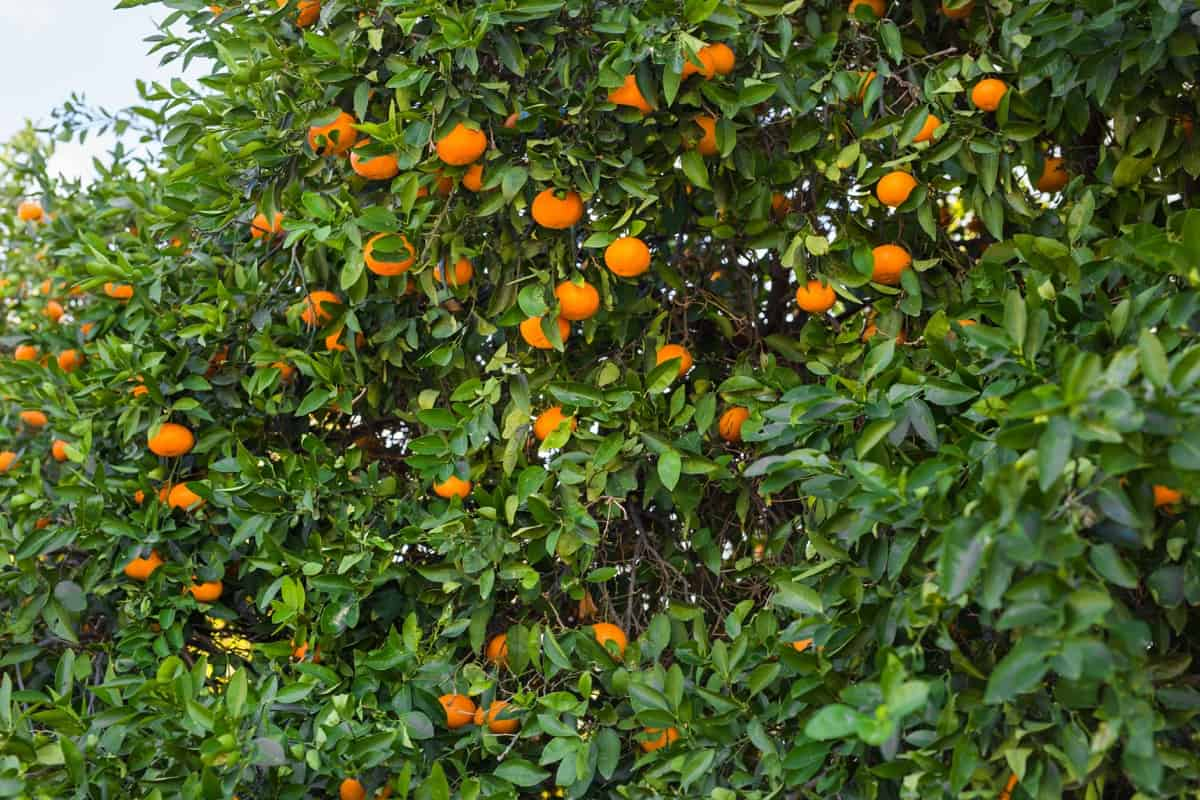
By bettering orange harvesting in Ceará and introducing superior farming practices for citrus in Brazil, the state meets the calls for of the worldwide citrus market, which boosts export development for Brazil’s oranges and helps maintain the worldwide orange provide chain operating easily.
| Farming Method | Function | Profit |
|---|---|---|
| Price-Efficient Farming | Cut back prices | Will increase profitability |
| Organic Pest Administration | Sustainable pest management | Aligns with eco-trends |
Boosting Maranhão’s Citrus Trade for International Orange Markets
The expansion of the orange juice trade globally is driving the rise of orange manufacturing, which is made simpler by Maranhão’s tropical local weather. Maranhão citrus farming requires efficient orange cultivation in Brazil and is dear as a result of state’s fertile citrus soils, which permit for prime citrus yields.
Maranhão orange exports contribute to the expansion of native economies on account of the rising demand for citrus merchandise globally. Built-in pest administration for citrus in Brazil’s Maranhão citrus plantations consists of fruit flies as one among its targets.
The federal government of Maranhão has plans to subsidize sustainable citrus manufacturing within the state, in step with international tendencies towards environmentally pleasant oranges. Water-efficient orange irrigation aids Brazilian farmers in preserving Maranhão orange crops from the results of drought and making certain constant harvests.
The state follows the present worldwide pattern within the orange trade by cultivating climate-resilient oranges in Brazil and bettering citrus harvesting in Maranhão. Profitability in orange fields in Maranhão is ensured, and Brazil’s competitiveness in citrus exports is enhanced.
| Sustainability Observe | Function | Profit |
|---|---|---|
| Water-Environment friendly Irrigation | Mitigate drought | Steady yields |
| Built-in Pest Administration | Management fruit flies | Reduces environmental affect |
Enhancing Piauí’s Orange Groves for International Export Potential
The tropical atmosphere of Piauí makes it a super location for rising oranges, that are in excessive demand globally. Though Piauí’s tropical soils are perfect for citrus development, meticulous soil administration is important to maintain Piauí citrus groves fertile.
Environment friendly citrus farming, which makes use of low-cost oranges grown in Brazil, ensures profitability in Piauí orange manufacturing. Exports of Piauí oranges, pushed by international demand for Brazilian oranges, contribute to the expansion of rural economies.
Piauí Citrus employs natural pest administration on oranges cultivated in Brazil, according to their sustainable orange farming practices. Brazilian authorities funds drought-tolerant orange varieties are being distributed to Piauí citrus plantations as a method of tackling local weather change.
Brazil’s elevated market share for orange exports and the reshaping of worldwide citrus provide dynamics end result from the state’s response to the rising international citrus market, which incorporates implementing trendy citrus agriculture in Brazil and bettering orange harvesting practices in Piauí.
| Assist Mechanism | Function | Profit |
|---|---|---|
| Authorities Funding | Drought-tolerant varieties | Enhances local weather resilience |
| Natural Pest Administration | Sustainable pest management | Meets international eco-standards |
Scaling Goiás’ Orange Farms to Fulfill Worldwide Demand
Manufacturing of oranges in Goiás is boosted by the subtropical local weather, which in flip meets the calls for of the worldwide orange market. The citrus-rich soils of Goiás state permit for prime citrus harvests, but environment friendly orange-growing strategies in Brazil are important for maintaining citrus farming prices down.
Exports of oranges from Goiás state contribute to financial development on account of the rising demand for citrus juice globally. Citrus estates in Goiás, Brazil, use organic pest administration for oranges to cut back chemical utilization.
According to orange manufacturing Authorities subsidies for citrus growers globally fund sustainable citrus farming in Goiás. Citrus growers guarantee fixed output of Goiás oranges by decreasing the results of drought utilizing water-efficient irrigation.
In the event you miss this: Citrus Farming in the Middle East.
The state will increase Brazil’s citrus export competitiveness and ensures profitability in Goiás orange fields through the use of climate-resilient orange cultivars in Brazil and enhanced citrus harvesting in Goiás, thereby satisfying international demand for Brazilian oranges.
| Farming Observe | Function | Profit |
|---|---|---|
| Water-Environment friendly Irrigation | Mitigate drought | Ensures secure manufacturing |
| Organic Pest Administration | Cut back chemical use | Environmentally pleasant |
Optimizing Mato Grosso’s Citrus Trade for International Juice Markets
Mato Grosso is ready to meet international demand for oranges due to its tropical atmosphere. Regardless of the significance of soil fertility management for citrus in Mato Grosso, the tropical citrus soils of the state promote strong development.
Making a revenue in Mato Grosso orange manufacturing is feasible by means of environment friendly orange farming that makes use of Brazil’s low-cost citrus timber. Mato Grosso orange exports assist rural cities financially, due to international patterns in orange juice demand.
Mato Grosso citrus orchards in Brazil undertake built-in pest administration to fight citrus pests. In Mato Grosso, the federal government affords monetary incentives to citrus orchards to encourage environmentally accountable practices, in step with present international tendencies.
Mato Grosso makes use of drought-resistant orange cultivars, and Brazil makes use of revolutionary orange harvesting methods in response to the rising international citrus market. This technique will increase Brazil’s orange exports and modifications the dynamics of the worldwide orange provide chain.
| Pest Administration | Function | Advantages |
|---|---|---|
| Built-in Pest Administration | Fight citrus pests | Reduces chemical use |
| Drought-Resistant Cultivars | Deal with local weather challenges | Ensures constant yields |
Rising Tocantins’ Orange Farms for International Citrus Wants
The tropical local weather of Tocantins is right for rising oranges, which has led to a rise in demand from all through the world. The citrus-rich soils of the state of Tocantins allow vital yields, but the monetary challenges in citrus farming in Tocantins require environment friendly orange manufacturing in Brazil.
The export of oranges from Tocantins boosts native economies on account of the rising demand for oranges globally. By way of using organic pest administration, the citrus orchards in Tocantins, Brazil, adhere to sustainable agricultural strategies.
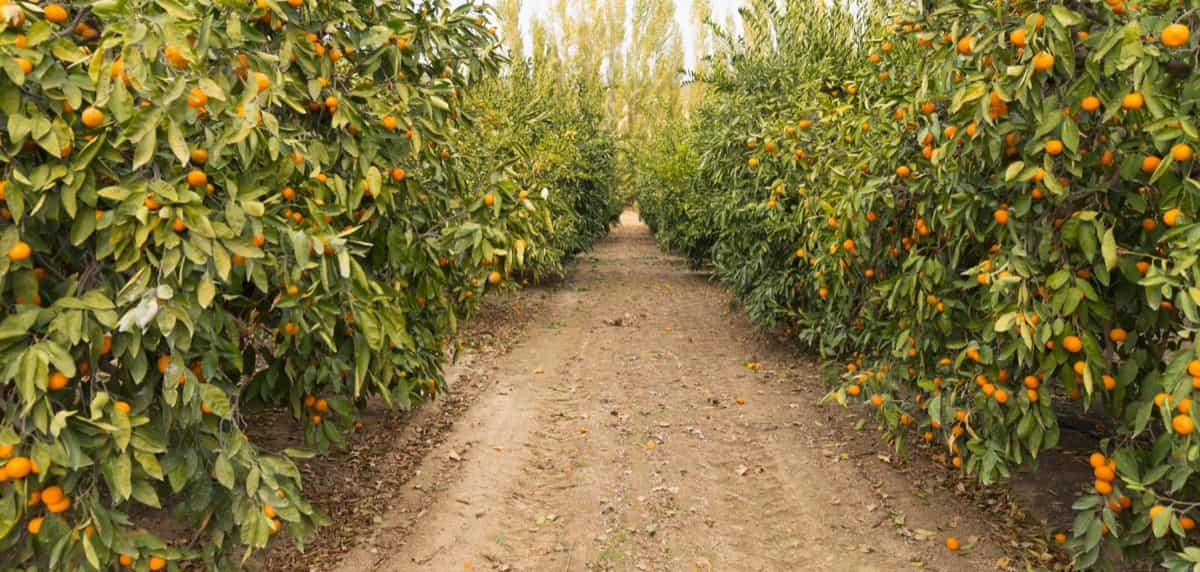
Subsidies for drought-tolerant orange cultivars are a part of new guidelines put in place by the Brazilian authorities to alleviate local weather change considerations in citrus plantations within the Tocantins area. Using trendy citrus farming methods in Brazil and superior citrus harvesting in Tocantins, the state meets the demand for Brazilian citrus abroad.
This ensures a revenue for the orange orchards in Tocantins and boosts Brazil’s export market share.
| Assist Measure | Function | Advantages |
|---|---|---|
| Authorities Subsidies | Fund drought-tolerant cultivars | Enhances local weather resilience |
| Organic Pest Administration | Sustainable pest management | Aligns with international tendencies |
Advancing Amazonas’ Citrus Trade for Area of interest International Markets
Authorities subsidies for citrus growers globally fund sustainable citrus farming in Goiás. Significance of soil administration in sustaining fertility in citrus plantations positioned within the Amazon: the state’s tropical citrus soils make manufacturing simpler.
Environment friendly citrus farming, which leverages low-cost orange rising in Brazil, ensures worthwhile orange output within the Amazon. The financial significance of Amazonian orange exports to native communities is pushed by the worldwide demand for citrus merchandise from Brazil.
Natural pest management for oranges in Brazil is utilized by Amazonas Citrus according to sustainable orange cultivation within the Amazon. The Brazilian authorities funds climate-adapted orange cultivars in an try and alleviate the drought issues skilled by citrus orchards within the Amazon.
The state is enhancing Brazil’s competitiveness as an orange exporter and supporting the sustainability of the worldwide citrus provide chain by implementing trendy citrus cultivation in Brazil and environment friendly orange harvesting within the Amazon. This aligns with worldwide citrus market tendencies.
| Farming Technique | Function | Profit |
|---|---|---|
| Environment friendly Farming | Cut back prices | Will increase profitability |
| Natural Pest Management | Sustainable pest administration | Meets eco-friendly calls for |
Enhancing Pará’s Orange Groves for International Export Development
The worldwide orange juice market necessitates the cultivation of oranges, which Pará’s tropical local weather makes doable. The wealthy citrus soils of Pará permit for prime citrus yields; nonetheless, environment friendly orange-growing methods in Brazil are crucial for value management in citrus farming .
Companies in Pará profit from orange exports due to the worldwide want for citrus juice. In Brazil, citrus orchards within the state of Pará use built-in pest administration methods to fight fruit flies.
The federal government of Pará incentivizes sustainable citrus rising, which is according to international eco-friendly orange tendencies. Brazilian farmers guarantee a constant provide of Pará oranges by decreasing the results of drought by means of using water-efficient irrigation.
The state of Pará responds to the rise of the worldwide orange market by using climate-resilient orange varieties in Brazil and trendy citrus harvesting methods. This enhances Brazil’s competitiveness in citrus exports and secures profitability in Pará orange fields.
| Pest Administration | Focused Pests | Advantages |
|---|---|---|
| Built-in Pest Administration | Fruit Flies | Reduces chemical use |
| Water-Environment friendly Irrigation | Mitigate drought | Ensures secure yields |
Scaling Roraima’s Citrus Farms to Meet International Orange Demand
Due to its tropical local weather, Roraima is ready to produce an abundance of oranges, that are in excessive demand on international markets. The tropical citrus soils of Roraima state promote vigorous growth; nonetheless, controlling soil fertility is important for Roraima citrus.
Orange farming in Roraima is cost-effective because it takes benefit of Brazil’s low-cost citrus rising, which ensures profitability in orange manufacturing. Rural areas reap the financial advantages of Roraima orange exports, that are pushed by the worldwide demand for Brazilian oranges.
Roraima citrus fields in Brazil use organic pest administration to develop oranges in accordance with sustainable citrus farming practices. Brazilian authorities packages financially help drought-tolerant orange varieties as a method of combating local weather change in Roraima citrus orchards.
By influencing the dynamics of the worldwide orange provide chain and rising Brazil’s orange export development, the state serves the calls for of the worldwide citrus market by means of trendy citrus cultivation in Brazil and environment friendly orange harvesting in Roraima.
| Assist Applications | Function | Advantages |
|---|---|---|
| Authorities Funding | Drought-tolerant varieties | Enhances local weather resilience |
| Organic Pest Administration | Sustainable pest management | Aligns with international requirements |
Conclusion
In response to surging international demand, orange manufacturing in Brazil has skyrocketed, positioning the nation because the main international provider of each oranges and orange juice. Areas like São Paulo, Minas Gerais, and Bahia make the most of a spread of tropical and subtropical temperatures and soil varieties to domesticate high-quality citrus fruits.
Precision agriculture, drought-resistant cultivars, and sustainable strategies all contribute to increased yields, even when confronted with challenges like pests, drought, and risky markets. Farmers profit from authorities subsidies and laws that assist them entry revolutionary expertise and ecologically pleasant practices, which is according to international sustainability tendencies.
The financial affect is substantial, since exports generate billions of {dollars} in money and help rural livelihoods throughout all 27 states of Brazil. Adapting to native circumstances and worldwide calls for, each area—from the coastal groves of Rio de Janeiro to the tropical plantations of Roraima—makes a selected contribution to this evolution.
The citrus trade in Brazil is flourishing, due to hardworking farmers who’re additionally involved concerning the atmosphere and the rising demand from health-conscious clients and increasing markets in Europe and Asia. By way of the ever-changing interaction of custom, innovation, and coverage, Brazil has managed to maintain its place because the world’s main citrus producer, making certain that the necessity for oranges is met whereas additionally fostering sustainable development.
Trending Merchandise


